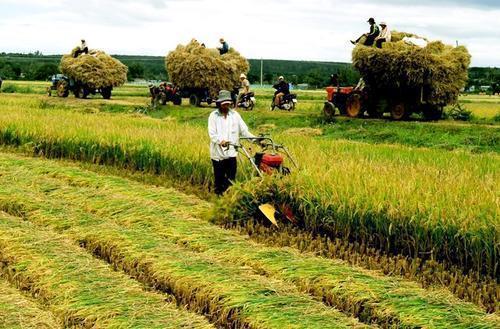
After years of reform and improvement, Vietnam has effectively played the role of land resources in serving social and economic development, ensuring national defense security, social stability, national food security, environmental protection, etc., and the effect of national land management has been gradually enhanced; land policies and regulations have been increasingly improved; various rights of land users have been expanded and state protection; real estate market and land The right to use has formed and developed rapidly. Through the household contract responsibility system and the establishment of land ownership system, the commercialization of land use rights and the scale of land management have been gradually promoted, and a more dynamic and regular land market has been established in rural areas.
In terms of land ownership, the land in Vietnam is owned by the whole people. As the representative of the owner of ownership, the state does not occupy and use the land, but delivers and leases the land. The state enjoys the right to the land income, so as to serve the national activities and the interests of the whole society. Vietnam's ownership of land ownership is clear, and the land is owned by the state. This single form of land ownership is simple and easy to implement, reduces the complexity of the policy, and is conducive to the unified management of land by the state.
In terms of land use right, Vietnam's land-use right has been separated from land ownership and has become a relatively independent right. The "land law" gives farmers the rights of long-term and stable use of land, as well as the rights of transaction, exchange, lease, inheritance, mortgage, joint venture, re lease and donation. The internal transfer of the right to use agricultural land is not restricted by the rights of community members, and the right to use agricultural land is not transferred from agriculture It can also be listed and traded after the approval of use change. In Vietnam, land use right is actually the economic performance of land ownership. In other words, it actually gives citizens limited land ownership. Vietnamese farmers have more stable farmland use rights than China, And more abundant. Therefore, land is more likely to be considered "private" in Vietnam.
In terms of land recovery, it is necessary to strengthen the marketlization and weak administration, enhance the openness and transparency, and attach importance to consultation and negotiation. There are a lot of economic development factors in the purpose of land acquisition in Vietnam. In the process of land resumption, the role of government is no longer the complex of participants and judges, but gradually changes into the role of manager and server. In the process of land resumption, the land owners should be given full right to know and participate. Guarantee the channel of expression of their opinions. Compensation prices tend to be market-oriented rather than government pricing. The government takes different intervention degree for different types of land resumption. Obviously, compared with the current situation of land expropriation compensation in China, there are more market-oriented factors in actual land recovery compensation in Vietnam, and the administrative leading force is weak.
转发0评论2